FIFA
Founded in 1904, FIFA is the governing body for football (soccer) worldwide, overseeing over 200 member countries. They’re most famous for organizing the massive World Cup, a global celebration of the sport watched by billions and uniting nations through friendly competition. Beyond the World Cup, FIFA works to promote and develop football globally, ensure fair play, and support member countries in growing their football programs. Led by officials like the President and Secretary General, FIFA plays a crucial role in shaping the future of football and its impact on the world.
The World Cup itself is a multi-stage tournament, with a chosen host country and a format that is complete in a exciting knockout stage. It’s a cultural phenomenon, generating immense national pride and showcasing the beauty of the sport on a global stage.
The Undisputed King: Why the World Cup Reigns Supreme in Football
The world of football revolves around one indisputable champion: the FIFA World Cup. While tournaments like the Champions League showcase incredible matches, they simply can’t compete with the World Cup’s unique magic.
Here’s what sets the World Cup apart:
- Rich history and legacy: The World Cup display a long and respected history, adding to its reputable position in the sport.
- National pride: It’s not just clubs battling it out, but entire nations represented by a single team, burn passionate support and national pride.
- Global phenomenon: The World Cup transcends borders, uniting billions of fans around the world with its fascinate matches.
This unique combination of factors, along with its amazing viewership numbers (over 3 billion viewers globally and a huge 1 billion for the final), solidify the World Cup’s position as the most significant and attract event in football, unmatched by any other.
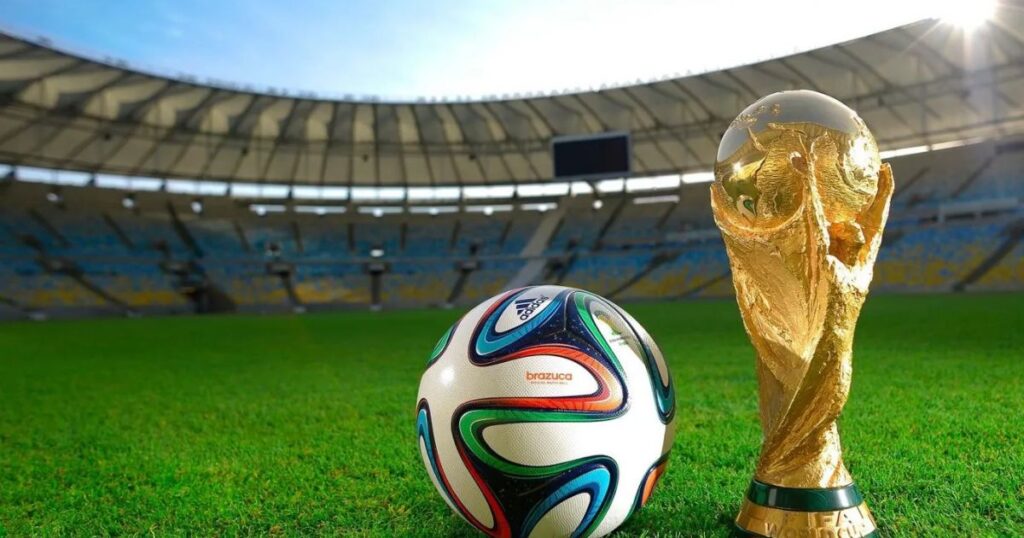
The Importance of the FIFA World Cup
Forget just another soccer game, the World Cup is a massive party for the whole world! It brings people together from everywhere to on their celebrate teams and cheer the beautiful game. It creates memorable memories that last a lifetime. Even if your own team isn’t there, the excitement is communicable. The World Cup is more popular than any other sporting event, even the Olympics. Sure, it’s a misfortune when your country doesn’t make it, but the amazing stories, energy, and incredible plays keep you attached to the screen, no matter what.
Check out our related article
Exploring the Excitement: FIFA World Cup 2026 in North America
The Evolution and Impact of the Euro Cup: A Comprehensive History and Analysis
FIFA World Cup Overview
Timing:
- The World Cup happens every four years.
- It started in 1930 and has been happening ever since.
- It usually takes place in June and July.
Qualification:
- National teams need to qualify for the World Cup through a process that lasts several years.
- Different continents have different numbers of spots available for the final tournament.
- Europe (UEFA) and South America (CONMEBOL) typically have the most spots allocated to them.
Host Country:
- The host country for the World Cup is chosen by FIFA several years in advance.
- The chosen country is responsible for:
- Building and maintaining stadiums
- Developing necessary infrastructure
Tournament Format
Football tournament with 32 teams from all over the world!
- First, the teams are divided into groups of 4 each. Think of them like mini-tournaments.
- Each team plays all the other teams in their group once. It’s like a round-robin, everyone plays everyone!
- The top 2 teams from each group move on to the next round. Only the best get to stay in the competition!
- From here, it’s win or go home! The remaining teams play single-elimination matches, where the loser is out.
- The matches continue until only one team remains – the World Cup champion! They lift the trophy and celebrate the victory!
Opening Ceremony
• The World Cup kicks off with a festive opening ceremony, held before the first match.
Final:
- The final match of the World Cup is played in the host country’s biggest stadium.
- This match is crucial, as it determines the World Cup champion.
Significance:
- The World Cup is one of the biggest and most respected sporting events on the planet.
- It attracts millions of fans from all over the world, uniting them in their love for the beautiful game.
- The tournament celebrates soccer and its ability to bring people together.
- It promote national pride for participating teams and their excited fans.
How does FIFA work
Here are some key objectives and duties of FIFA as outlined in its statutes:
FIFA’s Objectives
-
Improve and promote football globally:
- Improve and develop football continuously.
- Support youth and development programs.
- Expand the reach and popularity of the sport worldwide.
-
Organize and oversee football competitions and events:
- Manage FIFA World Cup, Confederations Cup, and Club World Cup.
- Coordinate international tournaments to showcase football talent.
-
Safeguard the integrity of football:
- Battle match manipulation, doping, and other forms of cheating.
- Protect the fairness and reliability of the sport.
-
Ensure uniform application of football rules:
- Maintain and improve the Laws of the Game globally.
- Promote consistent interpretation and implementation of rules.
-
Support member associations’ football development:
- Provide technical assistance, training, and financial aid.
- Foster growth and improvement of football in respective countries.
-
Promote fair play, diversity, and human rights:
- Confirm principles of sportsmanship, respect, and inclusivity.
- Advocate for diversity and human rights in football.
-
Encourage collaboration among stakeholders:
- Promote cooperation with associations, clubs, players, referees, and fans.
- Promote collective efforts for the improvement of football.
-
Ensure transparent and effective management:
- Manage FIFA’s finances and resources responsibly.
- Ensure accountability and transparency in resource utilization.
-
Promote peace, social integration, and international understanding:
- Utilize football as a tool for promoting peace and understanding.
- Encourage social integration through the sport.
-
Address global challenges through football:
- Develop policies and initiatives related to climate change, public health, and social justice.
- Leverage football’s influence to contribute positively to global issues.
What does FIFA stand for?
Now we are going to tell all of you about the full form of FIFA here. So, if you also want to know its full form, then read the given information carefully.
Full form of FIFA – Federation Internationale de Football Association
Roles and responsibilities of FIFA officials, including the President and Secretary General
Roles and Responsibilities of FIFA Officials:
-
FIFA President:
1. Leads FIFA, making sure everything runs smoothly.
2. Acts as FIFA’s ambassador, promoting soccer worldwide.
3. Chairs important meetings to discuss the future of soccer.
-
FIFA Secretary General:
- Chief administrative officer of FIFA.
- Manages day-to-day operations of the organization.
- Implements decisions made by Congress and Executive Committee.
-
FIFA Vice Presidents:
- Assist the President in various areas of FIFA’s operations.
- Responsible for specific domains like finance, marketing, and legal affairs.
-
FIFA Executive Committee:
- Manages FIFA’s affairs between Congress meetings.
- Composed of the President, Vice Presidents, and other members.
- Makes decisions on match scheduling, fund allocation, and regulation enforcement.
-
FIFA Congress:
- The supreme legislative body of FIFA.
- Comprised representatives from member associations.
- Meets every four years to elect President and Executive Committee, and review financial statements.
-
Referees and Match Officials:
- Ensure respect to FIFA’s laws and regulations during matches.
- Enforce game rules, make decisions on fouls, and track the score.
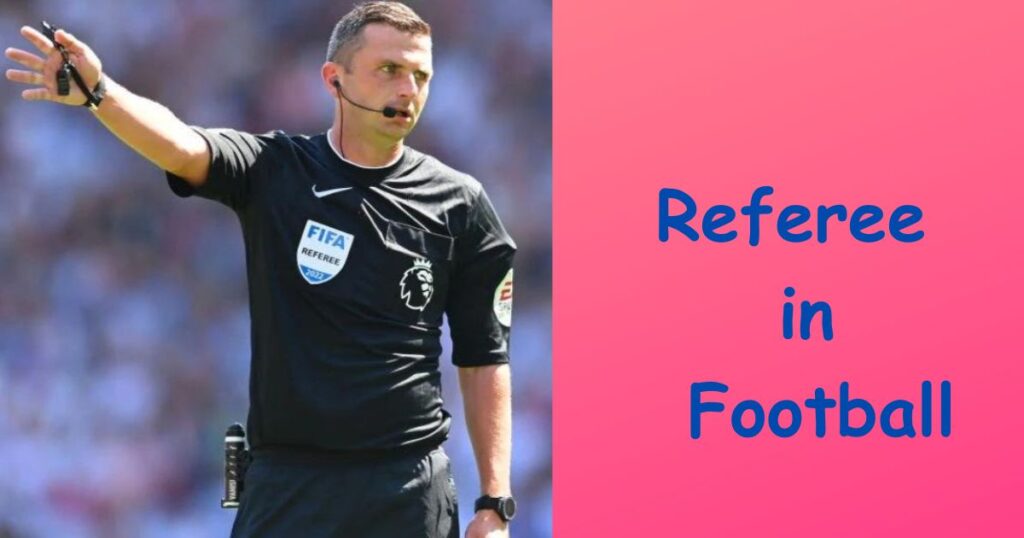
-
National Football Associations:
- Official organizations are responsible for soccer in respective countries.
- Affiliated with FIFA and implement its regulations.
- Promote soccer at the national level.
People who work at FIFA all work together to manage, run, and grow football around the world. Each person has a different job, but they all help make sure the sport stays fun and fair for everyone.
FIFA’s role in promoting football development and supporting member associations
FIFA’s Support for Football Development:
-
Financial support:
- Grants, subsidies, and funding to member associations.
- Assists with infrastructure, facilities, and coaching programs.
- Helps organize competitions and events.
-
Technical assistance:
- Provides guidance and coaching programs.
- Assists with football facility and infrastructure development.
-
Football for All program:
- Promotes football as a tool for social development and inclusion.
- Supports NFAs in developing inclusive football programs.
-
Youth development:
- Highlight the importance of developing young players.
- Assists with youth coaching programs and competitions.
-
Women’s football:
- Promotes and develops women’s football.
- Increases funding for women’s programs and competitions.
- Provides technical support to NFAs for women’s football development.
-
Referee development:
- Supports NFA referee programs.
- Offers training, education, and mentorship for referees.
- Encourages the development of women referees.
FIFA’s efforts in providing financial support, technical assistance, promoting inclusivity, focusing on youth and women’s football, and supporting referee development contribute to the overall growth and development of football worldwide.
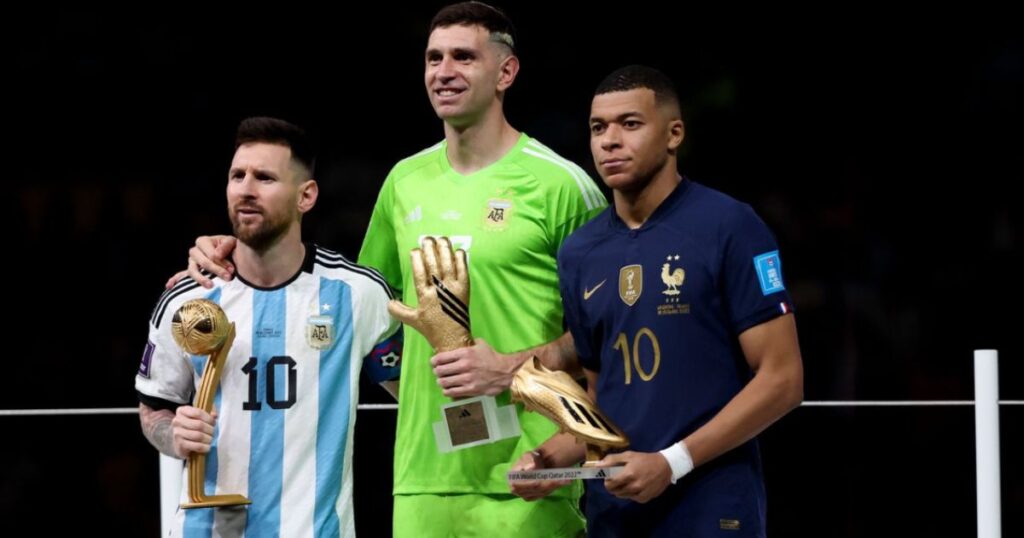
FIFA awards
Golden ball award
- Honors the best player of the tournament.
- Started in 1982.
- Chosen by votes from sports journalists.
Golden boot
- Rewards the player with the most goals in the World Cup.
- Introduced in 1982, and even awarded analytical to past tournaments.
- Second and third-place scorers receive the Silver Boot and Bronze Boot, respectively.
FIFA golden glove
- Honors the best goalkeeper of the World Cup.
- Introduced in 1994.
- Originally called the Yashin Award after legendary goalkeeper Lev Yashin.
- Awarded by a panel of experts from FIFA’s Technical Study Group.
Fifa Young Player Award
- Recognizes the best young player (under 21) at the World Cup.
- Introduced in 2006.
- Chosen by FIFA’s Technical Study Group.
Watch the video
Highest goal scorer in World Cup
Miroslav Klose
Team: Germany
Goals scored: 16
Matches played: 24
Participate: 2002, 2006, 2010, 2014
Ronaldo
Team: Brazil
Goals scored: 15
Matches played: 19
Participate: 1994, 1998, 2002, 2006
Gerd Muller
Team: West Germany
Goals scored: 14
Matches played: 13
Participate: 1970, 1974
Lionel Messi
Team: Argentina
Goals scored: 13
Matches played: 26
Participate: 2006, 2010, 2014, 2018, 2022
Just Fontaine
Team: France
Goals scored: 13
Matches played: 6
Participate: 1958
Pelé
Team: Brazil
Goals scored: 12
Matches played: 14
Participate: 1958, 1962, 1966, 1970
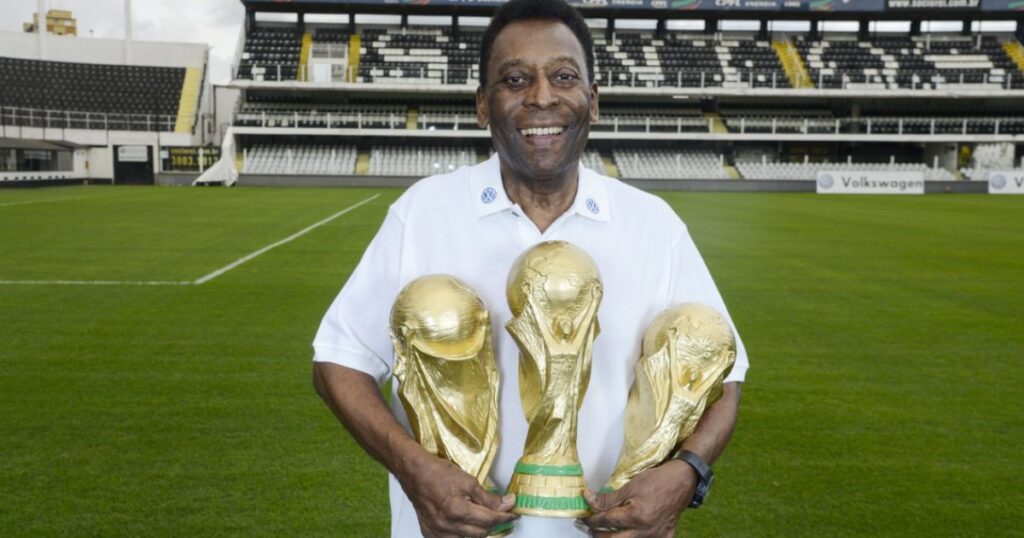
Kylian Mbappé
Team: France
Goals scored: 12
Matches played: 14
Participate: 2018, 2022
Sandor Kocsis
Team: Hungary
Goals scored: 11
Matches played: 5
Participate: 1954
Jurgen Klinsmann
Team: West Germany, Germany
Goals scored: 11
Matches played: 17
Participate: 1990, 1994, 1998
Helmut Rahn
Team: West Germany
Goals scored: 10
Matches played: 10
Participate: 1954, 1958
Gary Lineker
Team: England
Goals scored: 10
Matches played: 12
Participate: 1986, 1990
Gabriel Batistuta
Team: Argentina
Goals scored: 10
Matches played: 12
Participate: 1994, 1998, 2002
Teofilo Cubillas
Team: Peru
Goals scored: 10
Matches played: 13
Participate: 1970, 1978, 1982
Thomas Muller
Team: Germany
Goals scored: 10
Matches played: 16
Participate: 2010, 2014, 2018
Grzegorz Lato
Team: Poland
Goals scored: 10
Matches played: 20
Participate: 1974, 1978, 1982
FIFA World Cup winner
1930: Uruguay
Participant nations: 13
Winner: Uruguay
1934: Italy
Participant nations: 16
Winner: Italy
1938: France
Participant nations: 15
Winner: Italy
1950: Brazil
Participant nations: 13
Winner: Uruguay
1954: Switzerland
Participant nations: 16
Winner: West Germany
1958: Sweden
Participant nations: 16
Winner: Brazil
1962: Chile
Participant nations: 16
Winner: Brazil
1966: England
Participant nations: 16
Winner: England
1970: Mexico
Participant nations: 16
Winner: Brazil
1974: West Germany
Participant nations: 16
Winner: West Germany
1978: Argentina
Participant nations: 16
Winner: Argentina
1982: Spain
Participant nations: 24
Winner: Italy
1986: Mexico
Participant nations: 24
Winner: Argentina
1990: Italy
Participant nations: 24
Winner: West Germany
1994: United States
Participant nations: 24
Winner: Brazil
1998: France
Participant nations: 32
Winner: France
2002: Korea/Japan
Participant nations: 32
Winner: Brazil
2006: Germany
Participant nations: 32
Winner: Italy
2010: South Africa
Participant nations: 32
Winner: Spain
2014: Brazil
Participant nations: 32
Winner: Germany
2018: Russia
Participant nations: 32
Winner: France
2022: Qatar
Participant nations: 32
Winner: Argentina
Conclusion
Since 1904, FIFA has been the world’s leading organization for football, organizing major tournaments like the iconic World Cup. This global event unites nations and fascinate billions of fans, making it the most important event in the sport. FIFA’s mission is triple: to promote football globally, organize exciting competitions, and support member countries in their football attempt. With the President and Secretary General at the control, FIFA ensures the smooth running of the organization.
The FIFA World Cup stands as a evidence to the power of football, burn national pride and promoting a global celebration of the beautiful game. As the FIFA World Cup continues its efforts in development and governance, it shapes the future of football, ensuring its growth and continued global impact.
Frequently asked questions related to the FIFA World Cup
Q What is FIFA?
A: FIFA means Fédération Internationale de Football Association. It is the international governing body for association football, futsal, and beach soccer.
Q: When was the first World Cup and who won the First World Cup?
A: The first FIFA World Cup was held in 1930 in Uruguay.
Q: How many teams participate in the FIFA World Cup?
A: 32 teams currently participate in the FIFA World Cup, but it will increase to 48 teams in the 2026 edition.
Q: How are teams selected to participate in the FIFA World Cup?
A: Teams qualify for the FIFA World Cup through regional qualifying tournaments organized by their respective confederations.
Q: How often is the FIFA World Cup?
A: The Fifa World Cup is happening every four years, bringing together the top 32 national teams. The host country is chosen by FIFA’s Council.
Q: Who will be the champion of the FIFA World Cup in 2022?
A: The current FIFA World Cup champion is Argentina, who won the tournament in 2022.
Q: What is FIFA’s role in international football?
A: FIFA organizes international football competitions, promotes global football development, and enforces the rules of the game
Q: What are the FIFA 2026 World Cup host cities?
A: The 2026 FIFA World Cup will be hosted by 3 North American countries United States, Canada, and Mexico. There will be 16 venues in total. This time tournament will feature 48 nations divided into 12 groups of 4.

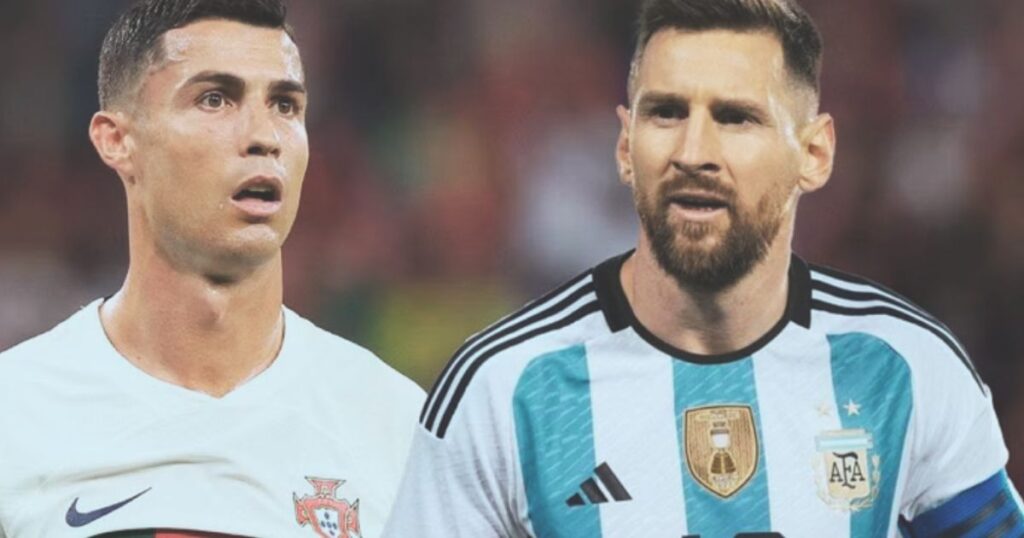
a adipisci non deserunt eos voluptas provident molestiae. cupiditate repellat veritatis doloremque nihil aut molestias eum nemo et tempora hic voluptas nobis molestiae et. et sit et numquam velit est